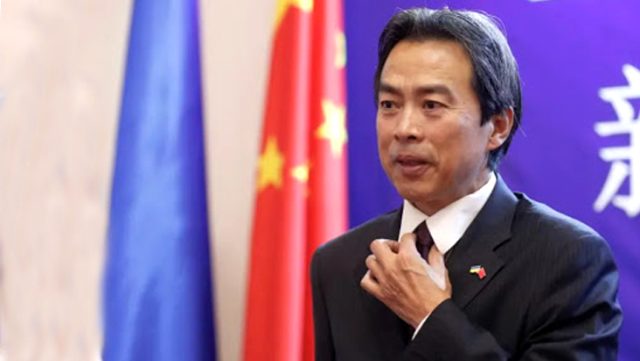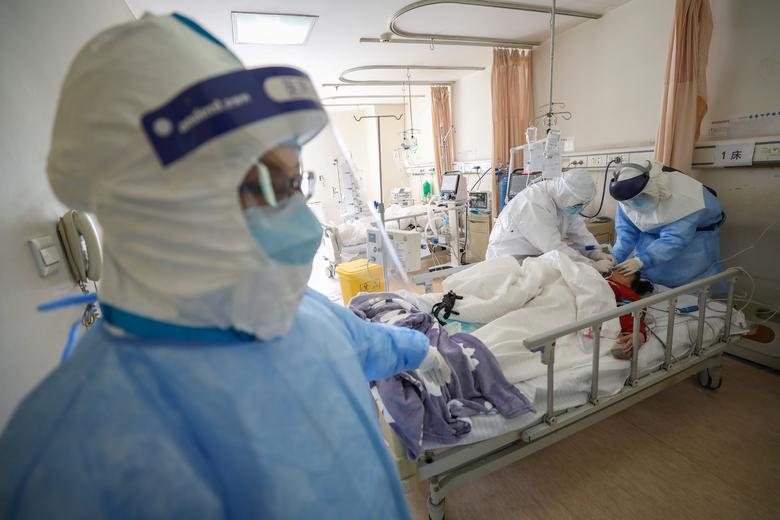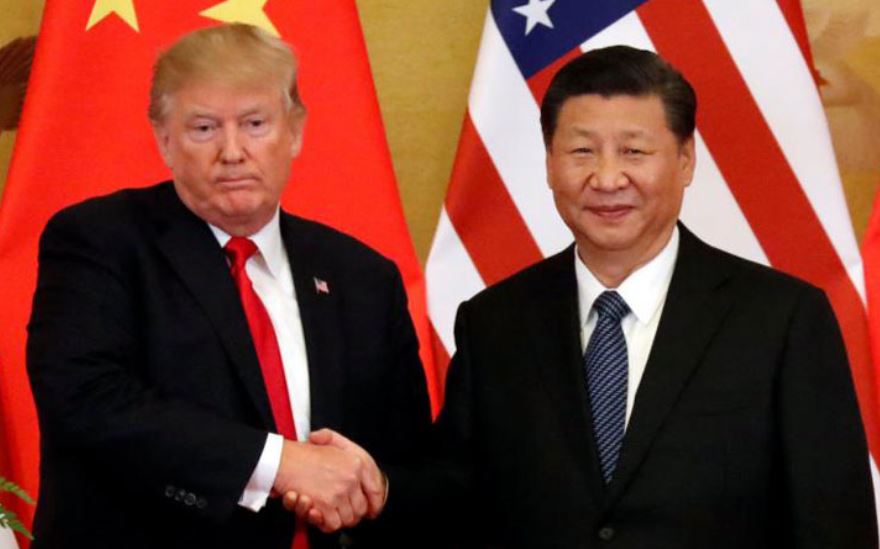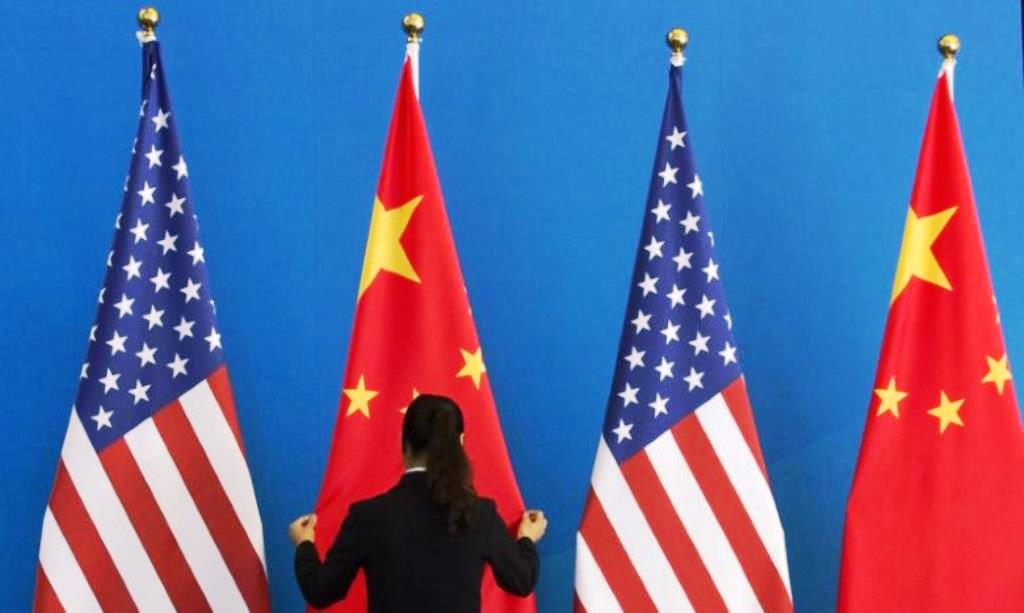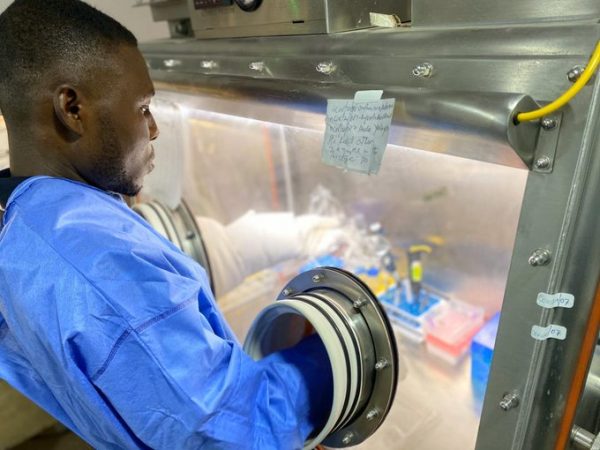Chidi Amuta
News is not just what has happened. It is also what is likely to happen as a consequence of the clear and present. The torrent of news about Covid-19 from around the world has in recent times inured our feelings to the companionship of disease and the proximity of death. But when the universal fear of the unknown is joined by a credible existential threat to the nation as we have come to know it, there is genuine reason to believe that we have entered a season of fear, a fertile ground for an epidemic of pessimism. I am now afraid for Nigeria.
In the last one week, two items of bad news burst the cocoon of our Covid-19 isolation. Word came that covid-19 had made land fall in the ancient city. There were 28 cases in one day, by last Wednesday. By the next 72 hours, a mystery affliction had produced over 150 fresh graves in the same Kano. No one knows yet what mystery disease yielded this grisly harvest. Nationally, the official death toll by Covid-19 had ballooned by another 115 by that same day. In one day only! Without comprehensive verifiable testing and in the absence of knowledgeable epidemiologists, no one knows how many more unreported deaths are happening alsewhere in the land as we speak. The cases in Kano could signal Nigeria’s real embrace with the reality of this pandemic.
The second new item is the historic slump in the international price of oil to near zero. Both, unless sensibly addressed, spell monumental disaster for Nigeria whether or not our present leadership admits it.
The strange mass death in Kano was shrouded in mystery for days. In the absence of credible official explanations to the contrary, the public suspicion remains that these people must have been decimated by undetected Covid-19. The news was quickly followed by official admission by the CDC that Kano had recorded 28 Covid-19 infections in one day. By our standards to date, this in itself is alarming. With the unaccounted deaths in Kano, the fear has come home that at last Covid-19 had entered an industrial phase in Nigeria. It means that the poor and unprotected, the inhabitants of our overcrowded urban slums are finally being infected and killed by the new virus. It is no longer a ‘big man’s virus’. Infection and death by Covid-19 is finally being democratized by scientific logic.
The frightening thing about Covid-19 in Kano is that most of the city like other slum urban dwellings in Nigeria dramatizes the way we are as a people. Kano is the heartbeat of the northern cultural end of our treasured diversity. The northern Islamic half of the country is culturally more susceptible to afflictions that target the communal aspect of our national identity. In these places, a strong sense of community makes nonsense of the concept of social distancing and self -isolation. Here, people pray together, dine together, live in close proximity to one another and troop out en masse to see curious happenings: political campaigns, football matches or senseless fights in public squares. I am not sure that those paid to educate our people on the protocols of the Covid-19 emergency have driven the message of social distancing and self isolation home enough to the masses especially in places like Kano, Sokoto, Maiduguri and even parts of Kaduna. Even if they have tried, such enlightenment does not settle into people’s consciousness so quickly. Sudden radio announcements do not alter people’s time honored traditional beliefs and treasured habits. Nor does propaganda suddenly build people bigger houses with pipe -borne water and proper ventilation.
Therefore, if the Covid-19 ends up with a larger than normal fatality rate in the major cities of the country, the deaths will be the result of a sad combination of extreme material poverty, inadequate enlightenment, bad education, faulty doctrine, inadequate infrastructure and the consequential ravages of a virus that has no time to wait for shallow governments to get their acts together.
Already, the governors of the northern states appear to have finally woken up to the danger at the door. First, the Kano state governor declared Almajirins, the ubiquitous street kids of unclear parentage and desperate circumstance, persona non grata. He ordered them cleared off the streets and insisted that they be deported to their perceived states of origin. I would not know how the great governor will determine the states of origin of this multitude of children. I am yet to hear details of the governor’s plans on resettling those of the kids that end up being Kano state indigenes.
In tandem with the Kano state example, the governors of the northern states have unanimously resolved (via video conference!) to ban the Almajirin system throughout the region. We await the details of the social resettlement and education policy to replace this backward age long system. If the aim is merely to contain the menace of Covid-19 only to let the kids loose on the streets after the virus abates, then a pox on all these governors. If however, we are seeing the beginnings of a major social reform to be backed up by legislation and concrete measures to ensure that never again will any future generations of Nigerian kids be branded social outcasts, then the Covid-19 emergency will have yielded a historic dividend.
For a predominantly agrarian region of the country, the rural portions of the northern states should have no problem with social distancing. Crowds do not gather on farmland. But the challenge is really in the homes and urban slums where life is lived in clustered communities.
At the other end, the drastic slump in world oil prices was a foreseeable outcome of the Covid-19 emergency. With most major manufacturing nations on lockdown and factories closed, demand for oil was predictably threatened. Similarly, with most of the world’s centres of commerce, manufacturing, travel, shut off and shut down, oil producing countries could predict their own outcomes. However, the magnitude of the oil price slump was not immediately foreseeable.
By last Monday, however, the United states benchmark West Texas oil price had entered negative territory, trading, with May/June futures prices at a frightening –minus $34 per barrel. Technically, this means that oil prices are at point zero. Oil ,which for over half a century had been the mainstay of the Nigerian economy, suddenly has no value literally.
It is true that Bonny Light which is Nigeria’s benchmark crude is not yet in negative territory but is trading at less than $20, barely above the average cost of production ($15-17) of each barrel.
It has been further magnified by an unprecedented boost in US shale oil production to a record 13.6 million barrels of oil per day. The glut threw it to Saudi Arabia and Russia to adjust their production downwards to balance out anticipated production cuts by OPEC and thus tighten prices when global economies recover.
For Nigeria, the risks and dangers ahead are specific. Here is a country that budgeted for 2020 at $57 per barrel hoping to pump 2.2 million barrels a day. It was to later readjusted to $30 in the heat of the Covid-19 emergency.
The fright of the oil price slump is driven home by the profile of Nigeria’s revenue base as a nation. We derive 60% of government revenue from oil royalties while
90% of our foreign exchange earnings come from oil and gas revenues. For us, therefore, oil prices are an existential variable and a national security factor.
I am not an economist by any stretch. But those whose business it is to look into these matters have established that Nigeria has the highest break-even oil price in the world at $133 because of a bloated national budget. We pay each of our 109 senators $37,500 a month. Our oil production cost per barrel is $15-$17.
At the current price, Nigeria’s daily loss of revenue is in the region of $35 million per day. Since oil is the basis for the viability of the Naira, the currency may be steeply devalued as our current external reserve of less than $37 billion cannot sustain the Central Bank’s subsidized exchange rate of the Naira at its present level. Fitch has established that with these figures, we may imminently be facing a sovereign debt crisis of epic proportions.
The fragility of our oil earnings prospects only compounds a tradition of abysmal governance and disastrous policy making. Having run nearly all our refineries aground, Nigeria produces crude oil, exports it to China, the US, Europe and India. Then we import refined gasoline at a higher price which is sold to consumers at a subsidy which government pays thereby piling up budget deficits. Then the same government borrows externally and internally to bridge the budget shortfalls.
To pay for the fleet of expensive Japanese SUVs for legislators and too many government officials, our government taxes businesses and individuals to sustain the lavish tastes and appetite of government. When questioned about these excessive taxes, official economists and other rented talkaholics cite a tax to GDP ratio from some IMF set menu card. They call it widening the tax net to ‘capture’ and trap as many poor Nigerians as possible in this vicious net! In turn, the businesses stagnate and can neither grow nor employ people.
Some of my economist friends tell me that the few over- taxed formally employed individuals can neither save nor consume enough to generate demand which drives supply and production. A learned friend told me that it is true fueling demand for goods and services that an economy can grow. Not being an economist myself, I listen to this analysis with my mouth open. I cannot in all honesty understand the thinking of people who do not pay their own personal bills.
Some agencies that should know better have more damning assessments of our economic management style and prospects. Bloomberg has established that in 2019, Nigeria spent four times as much money subsidizing imported gasoline as it spent on on schools, hospitals and science laboratories. Even while borrowing heavily from all corners of the globe, we have budgeted to hand out a whopping N37 billion to the leadership of an unproductive National Assembly in 2020 to renovate a complex where not much debate takes place except haggling over pork and undisguised rent seeking.
President Obasanjo and our best Finance Minister so far, Ngozi Okonjo-Iweala, reduced Nigeria’s external debts to near zero by 2006-2007. In the last five years especially, Nigeria has been borrowing like a drunken monkey stung by a thousand bees. Today, Nigeria is burdened by a surfeit of cheap loans from China as well as high interest rate Eurobonds and dubious sundry loans from Alibaba domestic banks. Our total debt stock is in excess of $80 billion. Of the bilateral debts, more than 78% is owed to China. Even now, debt servicing swallows up two thirds of Nigeria’s government revenue. This is the prelude to a sovereign debt crisis.
If the current oil price scenario holds for another year, Nigeria’s options will narrow to strangulating austerity policies that can only breed greater political and social upheaval. With hardly any coherent economic policy since coming into office, Mr. Buhari may be riding a tiger in his remaining three years in office. He may be compelled to devalue the nation’s Naira with clear and present dangers of attendant inflation.
With an estimated abject poverty population of nearly 100 million, Nigeria may be headed in the direction of Venezuela and Zimbabwe. The adoption of austerity measures may bring out the hunger mobs to the streets at a rate that could overwhelm the security forces already overstretched by violent crime, criminal insurgency and general insecurity.
We now live in a season of fear. Masks and personal protection gears are the uniform of a frightened generation. They speak of our innermost fears. They are our armour against an unknown and unseen foe. Perhaps no other costume conveys the universality of our shared fears than the ubiquitous masks of Covid-19. From Wuhan to Uyo, from New York to Kano and from Rome through London to Johannesburg and Lagos, the mask has become the mark of man’s desperate gasp for living air in a season of disease and the threat of unplanned death.
The masks of the season come in all shapes, colours and sizes. They are even becoming fashion statements. Yet of all the diverse masks in this season of masquerades, I am afraid of the ones in black and red. We have seen them here before. And they do not portend good. The black masks are the favourites of armed robbers and bandits of all iterations. Do not forget the officially licensed masks of the goons of the Department of State Security, the ones sent out to invade the National Assembly some time ago. Also the ones that recently stormed a federal court to re-arrest innocent detainees of power. The red masks with their accompanying bandanas were the favourites of the Niger Delta militants and the famed ‘Egbesu Boys’. Add the democratized masks of Covid-19 to the mix and the Nigerian season of masks is complete.
The restive and hungry mobs of Harare and Caracas made bad television. But the virtual unraveling of Zimbabwe and Venezuela are ongoing calamities and object lessons. Venezuela, a country blessed with huge oil and gas wealth, but felled by demagoguery as governance should resonate here.
There remains a way out. The Covid-19 emergency contains all the lessons we need to survive the looming economic calamity of the collapse of oil. Governance now needs to be about people; about food, health, education and compassion for the downtrodden. The empty emblematic pomposity of state power must now give way to governance that reaches out to touch the people in their place and hour of need. The ideological imperative of the moment is honest social democracy if indeed our politicians know what that means.
But clearly, fear is in season. We live in a time when pessimism has also become the democratic entitlement of all genuine patriots.
Chid Amuta is a member of TNG’s advisory board.
